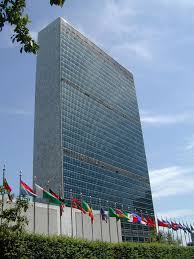In any bureaucracy, organizational documents are notable for what they say about an organization as well as what they don’t say. The International Monetary Fund’s 2013 Diversity Report recounts the Fund’s efforts to ensure that its staff is more representative. While these are important efforts, the key for the Fund moving forward lies in ensuring that its staff is intellectually diverse. Thinking more broadly about diversity so that it encompasses what people study in addition to standard demographic criteria will be an important priority for the Fund in the years to come.
The Diversity Report has a number of important findings that will merit extensive discussion. The share of staff in senior positions from underrepresented regions (which include Africa, the Middle East, East Asia, and countries in transition) is increasing. More women are moving into professional and managerial positions at the Fund. It should be stressed, though, that this report is not a triumphalist document. Many of the benchmarks for staff diversity are in danger of not being met by the end of 2014, and the report recommends a redoubling of efforts to make meeting these goals a priority.
These are important developments that merit reflection. For the IMF to publicly talk about what its staff looks like or ought to look like would have been unthinkable twenty years ago. Because the staffing issue has effects on the Fund’s future legitimacy, a sober appraisal of the limits of this report is essential. Diversity is defined in this report in terms of gender and national origin. While good progress is being made on these fronts, this report also underscores how much more effort is needed to improve the Fund’s intellectual diversity.
To better appreciate this problem, we need to understand what the IMF does. The IMF provides loans and advice to countries when their economies are in distress, and it provides advice to countries when they are not. What makes the Fund’s advice appropriate is as much as political judgment as it is an economic one. The IMF can recommend to Turkey that it slow the growth of fiscal stimulus, as it did a few weeks ago, but a brief read of the news from Ankara suggests that a government mired in scandals with elections on the horizon will not turn to austerity. Making the Fund happy will only further jeopardize the Erdogan government. We can certainly think about Ukraine’s new adjustment program in much the same way. It is no accident that governments resist implementing Fund-backed austerity measures, since the policy measures that the Fund wants borrowing countries to adopt (namely cutting spending and raising taxes) are those that might result in leaders being removed from office. Whether the Fund’s advice can make a difference requires an appraisal of a country’s political dynamics just as it requires a review of the country’s balance sheets.
And this is exactly the problem. For an organization proposing policies that are inescapably political, it lacks in-house expertise. Almost all of the 777 staff members holding PhDs at the Fund have their doctoral degrees in economics or in a subfield of economics. In this case, a more diverse Fund includes hiring experts in political science who can help the staff find those policies that are both economically as well as politically feasible. The Fund’s Diversity and Inclusion Statement accepts the value of this broader definition of diversity: “A diverse staff allows us to effectively draw on different perspectives to further enhance the quality of the decision making, enrich the relevance of our policy advice, and enhance our efficiency and effectiveness.” Put another way, a Fund with more intellectual diversity is a more effective Fund.
Would more intellectual diversity actually make a difference? Think about some of the challenges that the Fund currently faces. The Fund’s own Independent Evaluation Office finds that Fund staff viewed the financial systems of the US and Great Britain as shockproof, and so they failed to give clear warnings in advance of the economic crisis. While differences within economics do exist, an organization staffed purely by economists can be prone to viewing a problem only in one way. More broadly, the Fund faces the problem of ensuring that its advice is adopted by developed country politicians who do not need the IMF’s money. Traction is limited not because Fund advice is bad, but because it is not politically appropriate. The recently completed IMF review of Turkey raised the potential risk of increasing government spending borne by the approach of elections in 2014, but said nothing about the growing scandals confronting the government. In less developed countries, one out of five IMF loan programs still fail before their intended completion date. Solving this problem requires designing loan programs that are politically compatible as well as economically compatible. It is an open question whether the recently announced loan to Ukraine meets both criteria. A future IMF that confronts these challenges will need to be more interdisciplinary and less monolithic.
In a speech that she made at the Council of Foreign Relations shortly after taking the job, Managing Director Lagarde noted the value of broadening the Fund’s expertise. Discussing the importance of political factors that can affect economic policy, she said that the Fund does “need new thinking on the interplay between macroeconomics and these other dimensions.” As the IMF prepares an internal response to the Diversity Report, broadening the notion of diversity will improve its efficiency. Economists would all agree that this is a worthy goal.
